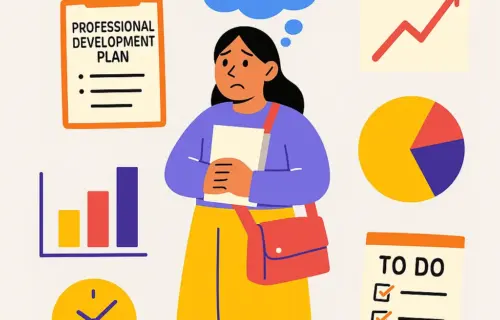Whether you’re organizing a conference or planning your school district’s professional development day, attendees will ultimately evaluate your event based on the quality of the speakers. Including expert insights in your event’s session content is a sure-fire way to boost attendance and attendee satisfaction.
But finding great speakers that can command a conference session, educate, entertain and engage the audience isn’t easy. Consider these tips for launching a call for speakers for your next event.
Establish a timeline for your call for speakers
Table of contents
An established timeline will ensure that your speaker lineup and associated materials are ready in time for your event. Your speaker lineup will also impact logistics, such as travel and accommodation preparations.
Depending on the size of your event, this process should start between 5-7 months before your event.
1st Month
- Set the call duration period. Typically, this should last between 4-6 weeks. Start by promoting a soft deadline, then announce an extension that closes a week later.
- Promote Your Event to Your Speakers. Getting great speaking talent requires convincing potential speakers that your event is the right place to unleash their wisdom.
- Profile Your Applications. Ask your potential speakers lots of questions about their experience, their approach, and try to get a sense for whether their presentation has been honed with practice or is a new concept that has to be developed.
2nd Month
- Review and select speaker submissions. Depending on how rigorous your application is, this process should take between 2-6 weeks. Don’t keep speakers waiting too long in case their agenda gets booked up in the meantime.
- Notify selected speakers. Invite successful speakers within 1 week of making your selections. If any decline, you need to move quickly to contact back up speakers.
- Give speakers time to accept. Give speakers 1-2 weeks to confirm their participation. Prepare reminder emails in advance to send after 1 week.
3rd Month
- Schedule your event sessions. Once your speakers have confirmed, spend 2-6 weeks putting your event schedule together. The longer you take, the less timely your event content will be.
4th Month
- Give deadlines for session materials. Set a 1-month deadline for submitting speaker bios, headshots, and session materials. Use an event management software tool that enables speakers to upload their own information to increase efficiency.
- Publish your event schedule. Publish a ‘scratch’ schedule 1-2 weeks after speakers have confirmed their attendance. Announce a detailed agenda 2-4 months before your event takes place.
5th Month
- Schedule a dress rehearsal with speakers. In a recent survey, attendees reported they often felt that speakers were unprepared. Avoid this by having check-in calls with your speakers to go through their session content and materials ahead of the event.
What to include in your call for speakers application
Before devising your call for speakers, refer to your content objectives. Keep them in mind when crafting your call to attract speakers that contribute to your overarching event goals.
Include practical information about the conference and its theme, as well as the type of presentations you’re seeking. Applicants can then determine whether their topic is suitable before submitting, saving you time during the review phase.
Here are some suggestions for what to include in your Call for Speakers application:
General information
- Overview of the event
- Event dates
- Event theme
- Location
- Important information about the call
- Deadlines
- Where to send the application
- The selection process and timeframe
- Eligibility criteria
- Any terms & conditions
Speaker(s) information
- Name of presenter
- Company
- Job title
- Email address
- Phone number
- Social media handles
- Names of any additional presenters
- Professional references
- An outline of their presenting experience
- Video links to previous talks
- Speaker bio
- Are they speaking as an individual or on behalf of an organization?
Event session information
- Session Title
- Session description
- What will attendees take away from this session?
- How does the session connect to the event?
- What type of audience does the session target?
- What experience level is the session suitable for? (e.g. beginner, intermediate, advanced)
- What materials will the speaker share with participants?
- Ideal session length
- What technological equipment and/or set-up does the session require?
- What will the session format be?
- Has the content been presented elsewhere?
- Has the speaker published anything on the topic? (e.g. books, articles, podcasts, papers)
How to promote your call for speakers
A well-thought-out call for speakers application is futile without an accompanying marketing campaign. For speakers to submit, they need to know about your call!
We recommend using direct and indirect marketing to build the greatest pool of applicants to choose from. Direct marketing takes more time, so prioritize a handful of speakers that you’d dream to have present at your event.
Direct marketing ideas:
Contact past speakers. If you’ve organized events in the past, ideally you have a database of past presenters. Drop them an email to see if they’re interested in submitting a new idea. Try using the same template you used when you invited them for previous events, so they understand why they’ve been asked this time.
Reach out to well-known industry speakers. Use social media to identify and reach out to reputable speakers in your industry – Twitter and Linkedin usually work best here. Make your message personal and demonstrate the value of presenting at your event. Bonus point? A well-known industry speaker on the lineup is alluring for potential attendees and can boost attendance.
Contact speakers who have given related talks at other events. Identify a list of past conferences that are relevant to your audience and event theme. Then, search conference directories for speakers who have given talks similar to yours before. If possible, review the post-event content to check the quality of the presenter’s session and materials. As before, craft personal messages and emphasize your event’s value to them.
Indirect marketing ideas:
Write blog posts. Show examples of quality submissions and explain the benefit of speaking at your event. This could include information about the audience they’d be reaching, promotional and networking opportunities, or free access to the rest of the event. You could also share testimonials and interviews from past speakers.
Use social media and email marketing. Promote your call for speakers on social media pages and post it in relevant industry groups. Make sure you announce your call for speakers in your event and/or company’s newsletter too.
NEW: Elevate your Call for Speakers with a streamlined (and free) purpose-built tool!

The above advice on crafting your call for conference speakers is solid. However, there is a lot of work there. And we know your time is precious.
That’s why – after listening to our event planners – we built our Call for Papers tool. The benefits are too good to say no.
- Super easy to use: With our tool, you can effortlessly create a professional and distinctive call-for-speakers page in just three simple steps. It’s a huge time saver.
- Save (more) time: Sifting through countless speaker applications manually is bogging down your event’s planning phase. The software will take care of assessing the applications, presenting you with a refined list of top candidates.
- Better picks: After that, your only task will be to select your favorites from the cream of the crop. The result? More captivating speakers for your audience and a smoother planning experience for you!
This feature is in high demand, so ensure you’re on the waiting list to make sure you get all the benefits!
Conclusion
Launching a well-prepared call for speakers is a critical part of the event planning process. What you achieve here has a huge impact on the shape of your event and ultimately, attendee satisfaction. Dedicate energy to this to set your event up for success and use an event scheduling software tool to manage speakers effectively later.








